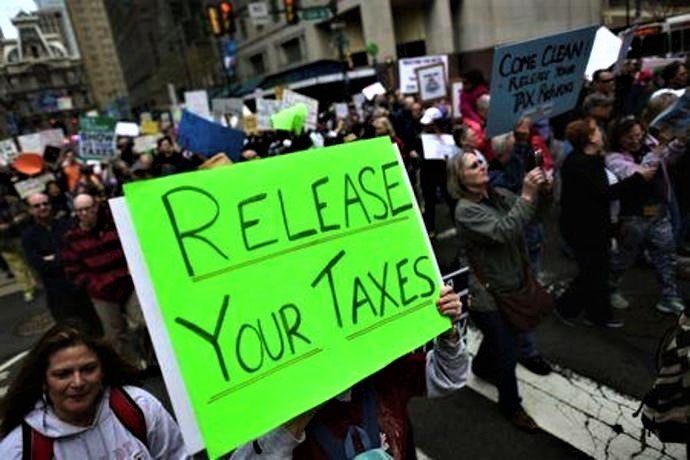Donald Trump once mocked Mitt Romney for not releasing his tax returns in 2012. He then promised he would do so as a candidate in 2016. Then the excuses started on why he couldn’t release them. The new House majority now plans to get them, one way or another.
The top tax-writing committee in the House is readying a request for years of Trump’s personal tax returns that is expected to land at the Internal Revenue Service as early as the next few weeks.
And Democrats are prepared to “take all necessary steps,” including litigation, in order to obtain them.
Ways and Means Committee Chairman Richard Neal, D-Mass., has asked the committee’s attorneys to prepare the request, according to two aides involved in the process
Neal has also contacted the chairs of several other House investigative committees, including Oversight and Government Reform, Financial Services, Intelligence and Judiciary, asking them to provide detailed arguments for why they need the president’s tax returns to conduct their probes.
“Every day the American people and Congress learn more about President Trump’s improprieties, from conflicts of interest to influence peddling, potential tax evasion and violations of the Constitution — all roads leading back to President Trump’s finances,” said Ashley Etienne, spokeswoman for House Speaker Nancy Pelosi.
“These improprieties, and the lack of transparency around them, give the House legitimate legislative, oversight and legal reasons to review the President’s tax returns. We will take all necessary steps, including litigation, if necessary, to obtain them.” Etienne confirmed that the committees are working together to “ensure the House is able to present the strongest possible case.”
Ways and Means is the only House committee with the authority to directly make the request for Trump’s returns.
Treasury Secretary Steven Mnuchin, whose department has authority over the IRS, will decide whether or not to grant the request.
If Mnuchin, as expected, refuses to release them, it could set off a series of legal challenges, with federal judges being asked to adjudicate the limits of the president’s power.
George Yin, the former executive director of the Joint Committee on Taxation, said that he doesn’t believe there is any legal basis for the White House to assert executive privilege in attempting to block the release of tax returns.
“I can’t think of any grounds for executive privilege,” said Yin, who is now a professor of law and taxation at the University of Virginia. “All of this seems to me to have nothing to do with his official duties as president.”
But he said there would be an onus on Democrats to explain precisely why they are seeking the information, to prove there is a legitimate legislative purpose for any inquiry.
In an ironic political twist, Romney has ridiculed Trump for refusing to release his tax returns.
“It is disqualifying for a modern-day presidential nominee to refuse to release tax returns to the voters, especially one who has not been subject to public scrutiny in either military or public service,” Romney said during the 2016 campaign. “Tax returns provide the public with its sole confirmation of the veracity of a candidate’s representations regarding charities, priorities, wealth, tax conformance, and conflicts of interest.”
